Badger cull: second anti-TB campaign begins
Despite opposition, badger culling is underway for a second year in an attempt to eradicate bovine TB
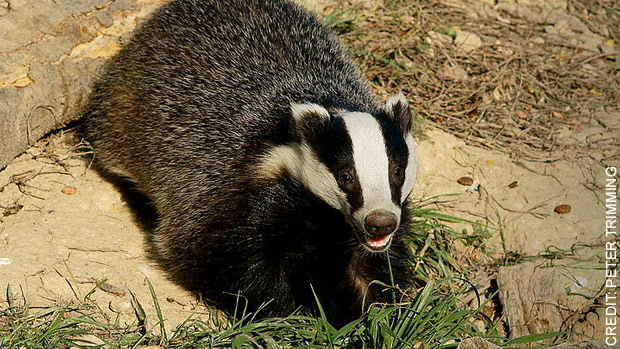
A free daily email with the biggest news stories of the day – and the best features from TheWeek.com
You are now subscribed
Your newsletter sign-up was successful
The second controversial badger cull has begun across Somerset and Gloucestershire, as the government's four year scheme to attempt to control the spread of bovine TB using marksmen continues.
The Environment Secretary Elizabeth Truss said the strategy of shooting badgers was supported by leading vets and that the government had no other option when it came to tackling the disease, saying the cull was "vital for the future of our beef and dairy industries, and our nation's food security".
"At present we have the highest rates of bovine TB in Europe. Doing nothing is not an option."
The Week
Escape your echo chamber. Get the facts behind the news, plus analysis from multiple perspectives.

Sign up for The Week's Free Newsletters
From our morning news briefing to a weekly Good News Newsletter, get the best of The Week delivered directly to your inbox.
From our morning news briefing to a weekly Good News Newsletter, get the best of The Week delivered directly to your inbox.
Just under 1,000 badgers are expected to be killed in this year's scheme, the BBC reports. Animal rights and environment campaigners have begun a second round of protests against what they call cruel and "incompetently managed" killings.
National Farmers' Union president Meurig Raymond defended the cull, saying the effects of bovine TB was crippling farms across the UK. Last year 26,000 cattle had to be slaughtered because of the disease leading to millions of pounds in losses.
"I've seen first-hand the total human misery this disease causes for farmers and their businesses," he told The Guardian. "No one would choose to kill badgers if there was an effective alternative"
Almost 2,000 badgers were culled across Somerset and Gloucestershire last year. However, neither pilot managed to reach its targets. It is thought that 70 per cent of the badger population needed to have been destroyed in order to make the cull effective, however only 65 per cent was killed in Somerset and 40 per cent in Gloucestershire.
A free daily email with the biggest news stories of the day – and the best features from TheWeek.com
Campaigners are angry that the independent monitoring that was present at the trials has been dropped, and have accused the Department for Environment, Food and Rural Affairs (Defra) of "sacking the referee".
Queen guitarist Brian May has long been a vocal campaigner against the badger cull, saying it is a decision politicians will come to regret.
"This cull is a failure and a disgrace, no more than the fulfilment of a dirty promise - which will rebound on this government at election time."
Badger cull 'misses target' and may be extended
09 October
THE controversial cull of badgers may be extended after marksmen failed to reach their target of killing 70 per cent of badgers in the two trial areas. In west Somerset only 850 badgers were killed compared with a target of 2,081, the BBC reports.
However, sources from the Department for Environment, Food and Rural Affairs say that the badger population may be much smaller than initially thought and have revised the target down to 1,450.
A preliminary report released at the end of the trial will confirm how many animals have been killed and whether their deaths were humane. It will not rule on whether or not the cull has proved effective in controlling the spread of bovine TB.
Q&A: The badger cull trials What is the scope of the trials?
The culls are taking place in West Gloucestershire and West Somerset, two areas where a high number of TB infections in cattle have been detected. In each county, the aim is to kill about 70 per cent of the animals in an area roughly the size of the Isle of Wight. The initial targets were 2,856 badgers in Gloucestershire and 2,081 in Somerset, but they have been revised down to 1,645 in Gloucestershire and 1,015 in Somerset.
Why have the targets been cut?
During the culls Defra surveyed badger populations in the two areas and found fewer animals than they had previously estimated. As a result, the 70 per cent target can be reached with a smaller number of kills. Defra says the population has probably declined as a result of last year’s cold winter, disease and a lack of food.
How are the badgers killed?
Badgers are nocturnal, so they are shot at dusk or at night. Marksmen either comb an area using a torch or set out bait and lie in wait. Humane standards require the shooter to “endeavour” to kill the animal with a single shot. To do so they need to be able to accurately locate the badger’s heart-lung area and be confident of a clean kill. There are “inherent problems in shooting the animals at distance in the dark”, reports the BBC. As a result, officials “accept” second shots may sometimes be necessary to dispatch the animal. They also have to be careful that they don’t shoot an animal within 30 metres of the entrance to a sett, allowing a wounded badger to retreat underground. Who’s doing the shooting?
The marksmen are licensed by Defra and have to pass the department’s marksmanship course. Defra also stipulates the minimum calibre, bullet weight and muzzle energy of the firearms that can be used. Each pilot cull will cost about £100,000 a year, with the costs met by farmers who want badgers killed on their land. Policing the protests ignited by the culls is considerably more expensive. Why can’t we vaccinate badgers and cows? There is a vaccine for TB which has been given to badgers – at a cost of £662 per animal – in Wales and parts of England. There is also a vaccine for cattle, but it is currently outlawed by EU legislation, mainly because it can interfere with the main diagnostic test for TB. The vaccine is ineffective when given to animals already infected with the disease. What are the arguments in favour of culling?
It is estimated that 15 per cent of badgers in the general population have TB, but 30-40 per cent have the disease in so-called ‘TB hot-spots’, Channel 4 News reports. Adam Quinney, the vice president of the National Farmers Union, says independent scientific reports suggest that up to 50 per cent of bovine TB cases in hot-spot areas are “from badgers to cattle”. Says Quinney: “Until all reservoirs of the disease are tackled, including wildlife, re-infection will continue to occur regardless of what cattle testing and movement controls are in place.”Last year 34,000 cattle had to be slaughtered in the UK after contracting TB and the cost of compensating farmers totalled £150 million, says Sky News. Ministers – and “the majority of farmers” – believe measures to control the transmission of TB between cattle are not enough to stop the disease spreading. Controlling TB in the badger population needs to be done at the same time. And the arguments against?
The culls have been attacked on grounds ranging from cruelty to flawed economics. The principal objection – besides cruelty – is that there is no compelling scientific consensus that badgers transmit TB to cattle. Another argument is that culls actually spread TB by forcing infected animals to flee their setts.Mary Creagh, Labour's Shadow Environment Secretary, summed up some of the objections when she said leading scientists had described the culls as an “untested and risky approach”. "A cull would be bad for badgers, bad for farmers and bad for taxpayers,” she told the Daily Telegraph. “The taxpayer will pay policing costs of £4 million for just two areas, while the cull will spread bovine TB in the next two years as the shooting displaces badgers. What happens next?
If the trials are judged to be humane and cost-effective, ministers may decide to roll-out badger culling to the rest of England. If that occurs, about 100,000 animals will be killed. Culls won’t be needed in Scotland which is classified as free of TB and the Welsh Assembly Government has chosen to vaccinate badgers, with trials underway in North Pembrokeshire.
-
 The ‘ravenous’ demand for Cornish minerals
The ‘ravenous’ demand for Cornish mineralsUnder the Radar Growing need for critical minerals to power tech has intensified ‘appetite’ for lithium, which could be a ‘huge boon’ for local economy
-
 Why are election experts taking Trump’s midterm threats seriously?
Why are election experts taking Trump’s midterm threats seriously?IN THE SPOTLIGHT As the president muses about polling place deployments and a centralized electoral system aimed at one-party control, lawmakers are taking this administration at its word
-
 ‘Restaurateurs have become millionaires’
‘Restaurateurs have become millionaires’Instant Opinion Opinion, comment and editorials of the day
-
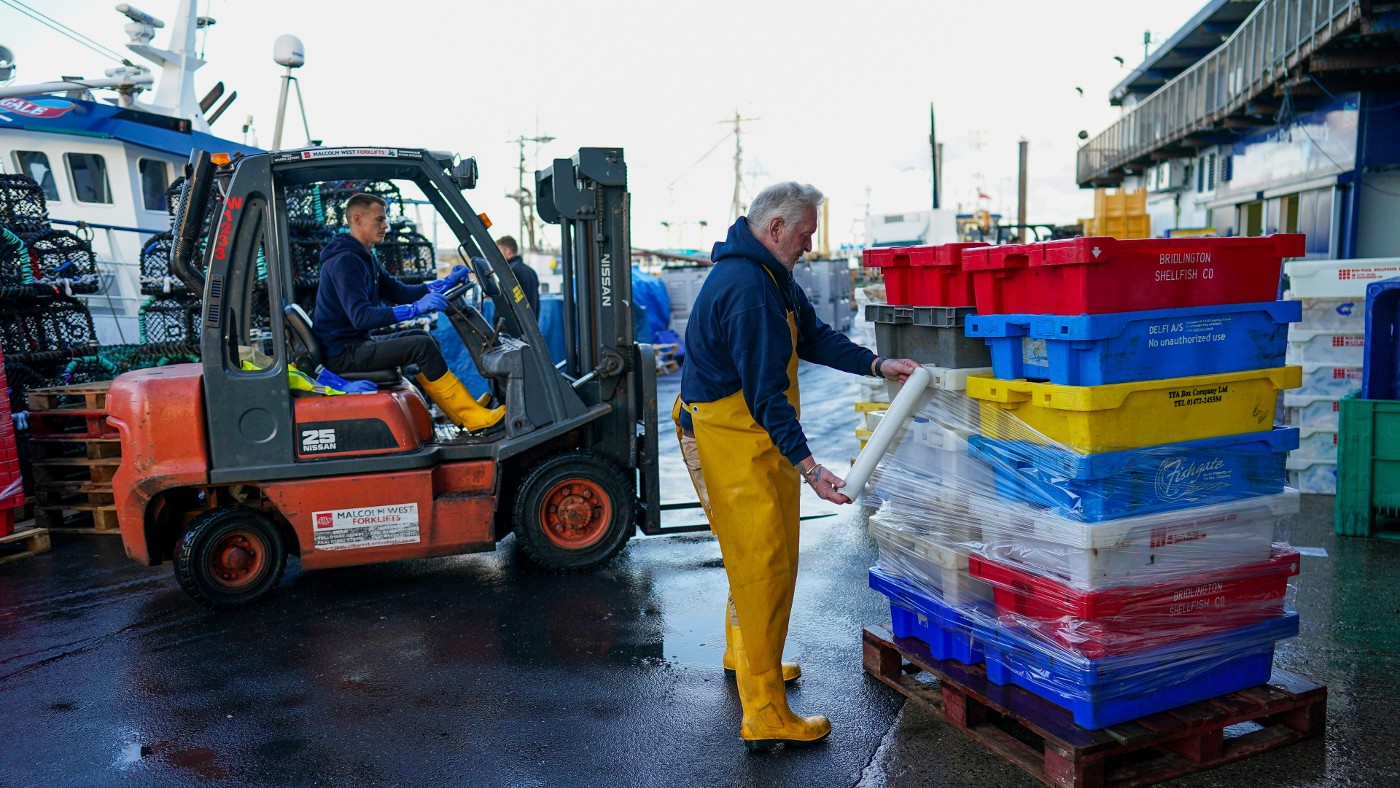 Is the freeport to blame for loss of marine life in Teesside?
Is the freeport to blame for loss of marine life in Teesside?feature Bitter row has broken out between the government and fishermen over mass die-off of crabs and lobsters
-
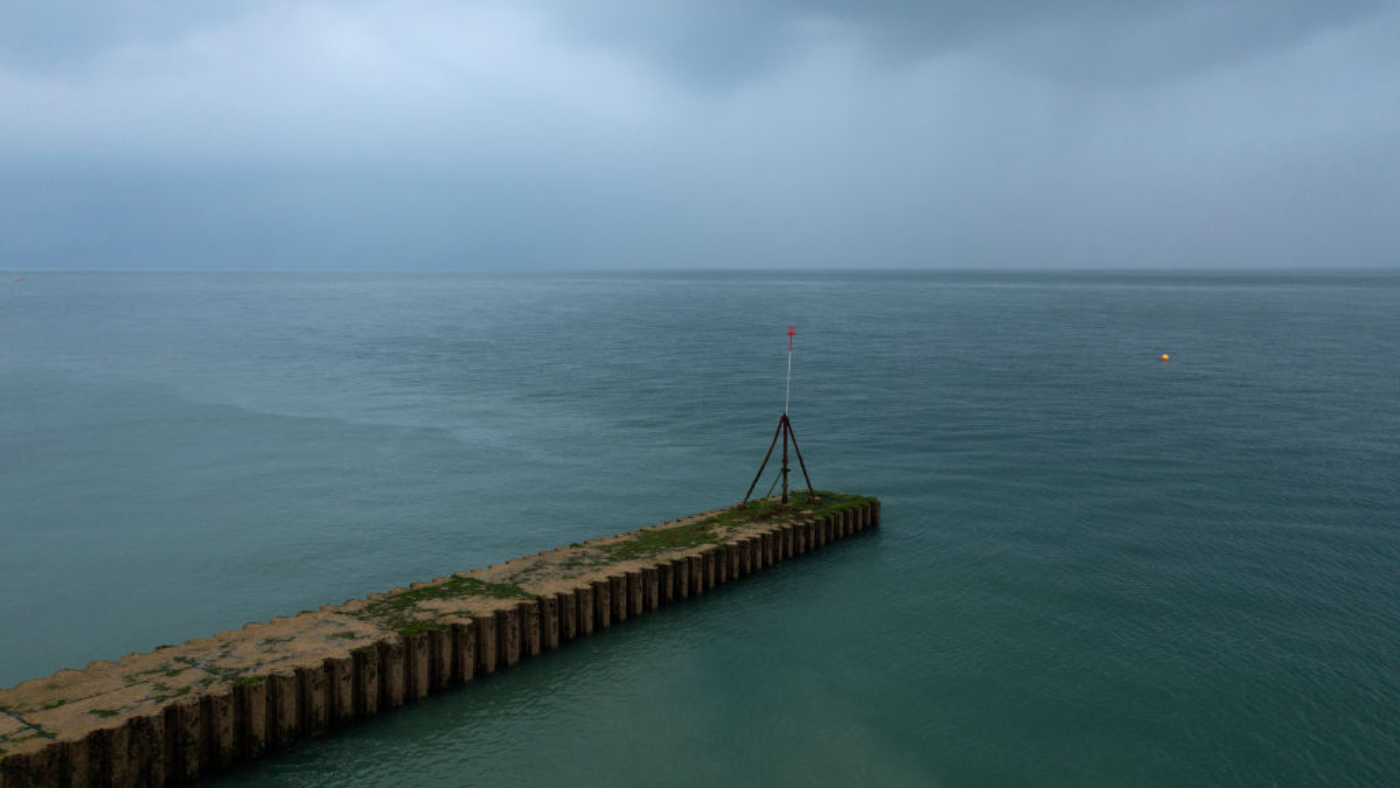 Is it dangerous to swim off Britain’s beaches?
Is it dangerous to swim off Britain’s beaches?Today's Big Question Beachgoers warned not to enter water at up to 50 locations after sewage pumped into sea
-
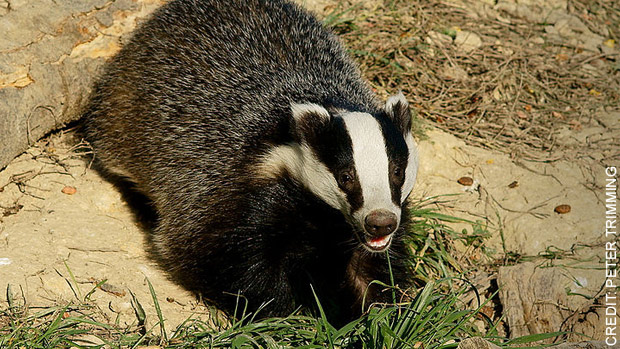 What is the badger cull and why is it controversial?
What is the badger cull and why is it controversial?Speed Read TB rates in one of UK's main badger cull areas soared by 130% last year
-
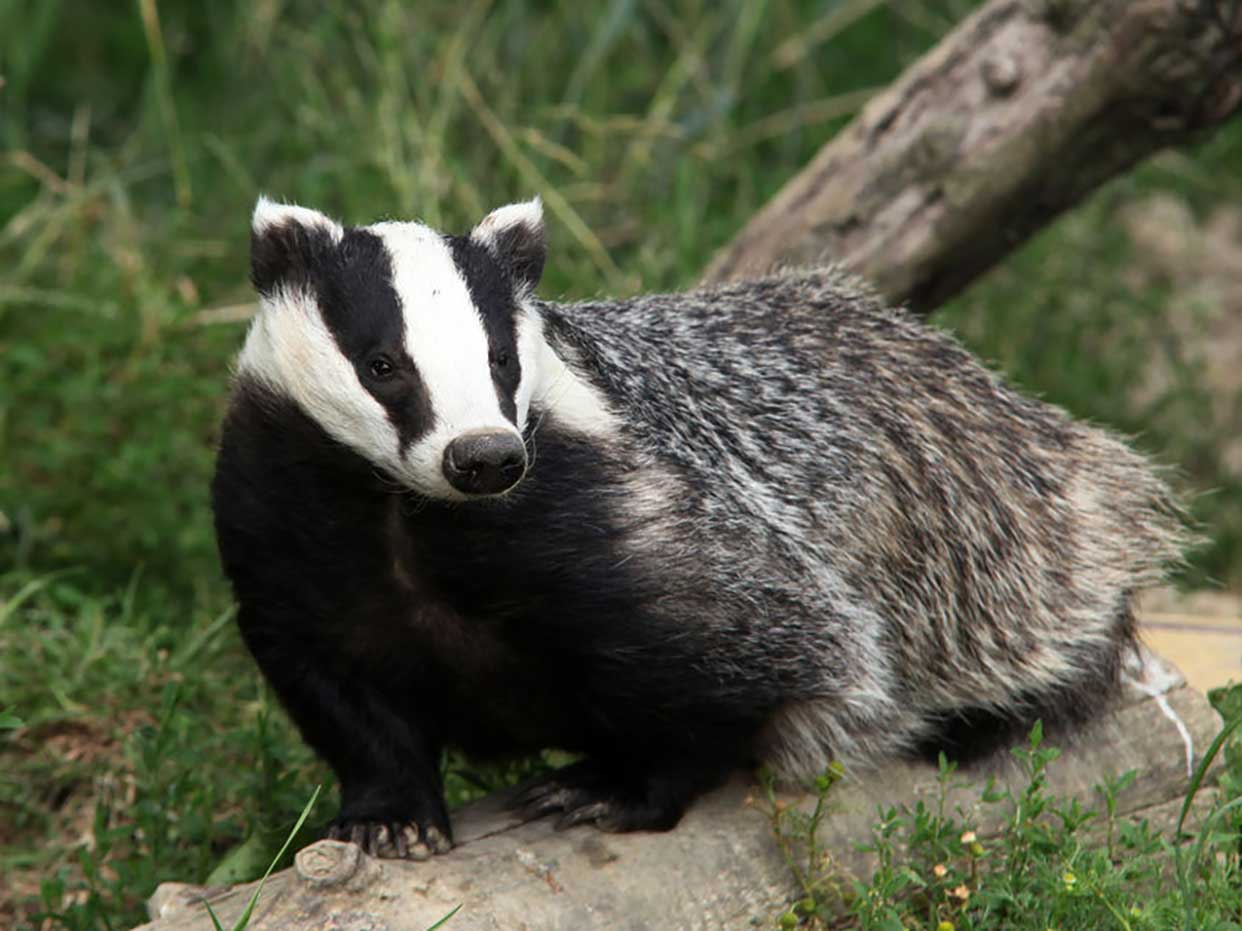 Badger culls: government statistics dismissed as ‘barefaced lies’
Badger culls: government statistics dismissed as ‘barefaced lies’Speed Read Experts challenge claim that strategy is cutting spread of tuberculosis in cattle
-
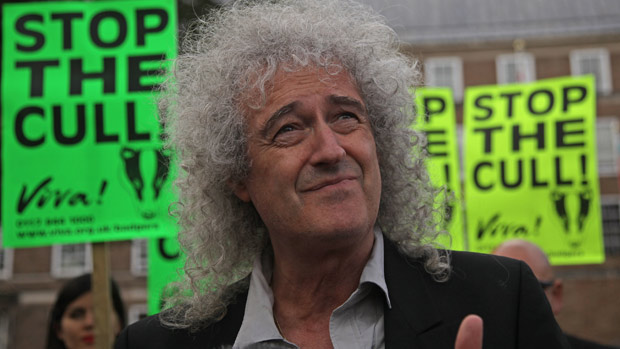 Badger cull: Brian May says he was banned from Springwatch
Badger cull: Brian May says he was banned from SpringwatchIn Depth Queen guitarist and badger campaigner says he wasn't allowed to mention cull on ITV or BBC
-
 Badger cull: Brian May calls milk boycott as saboteurs prepare
Badger cull: Brian May calls milk boycott as saboteurs prepareIn Depth Meanwhile, police chief warns badger culls will be risk to public safety because of presence of protesters